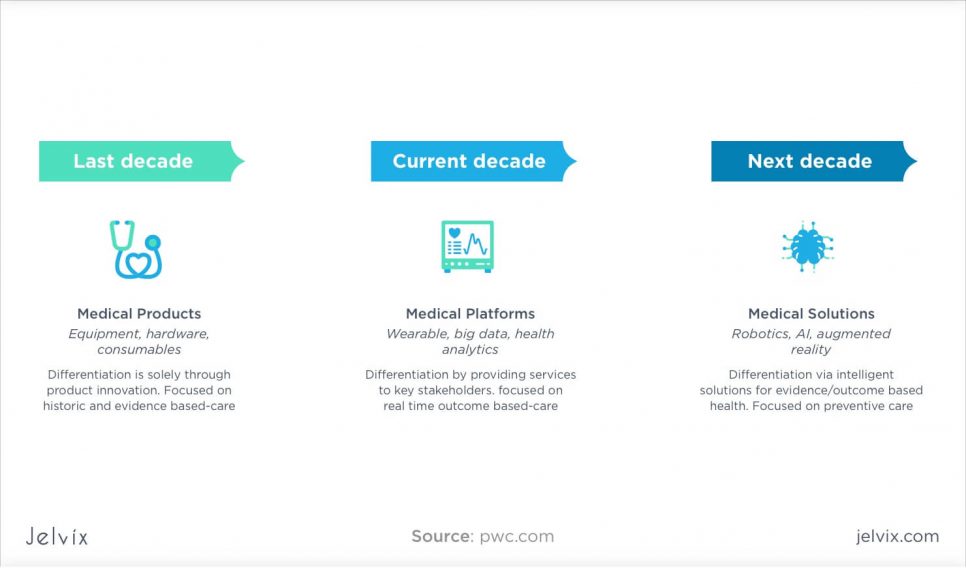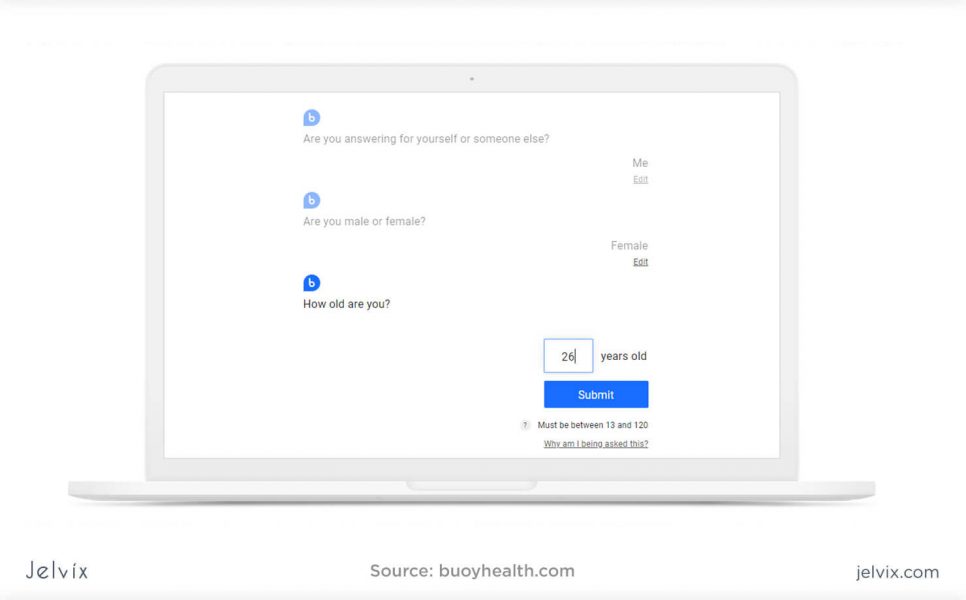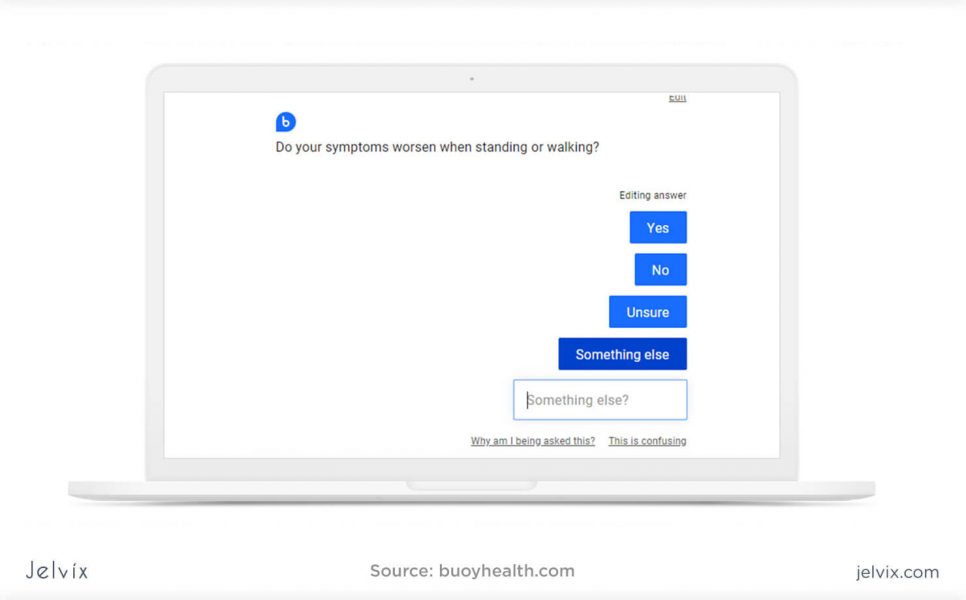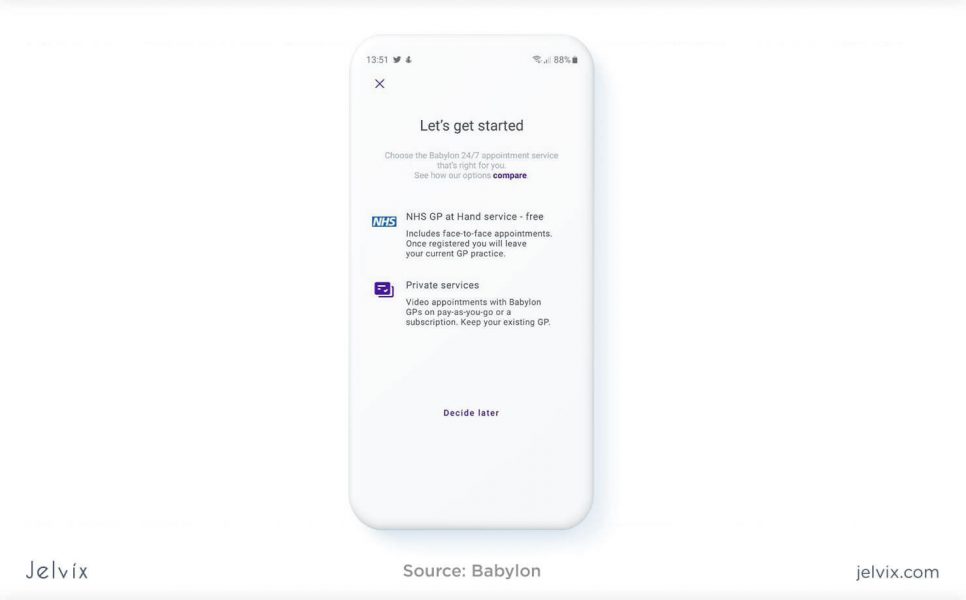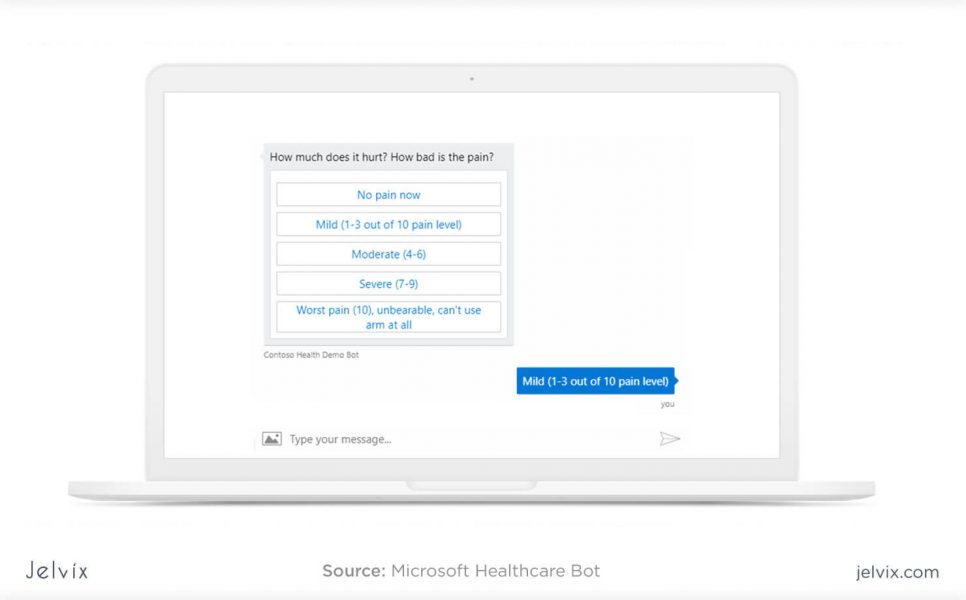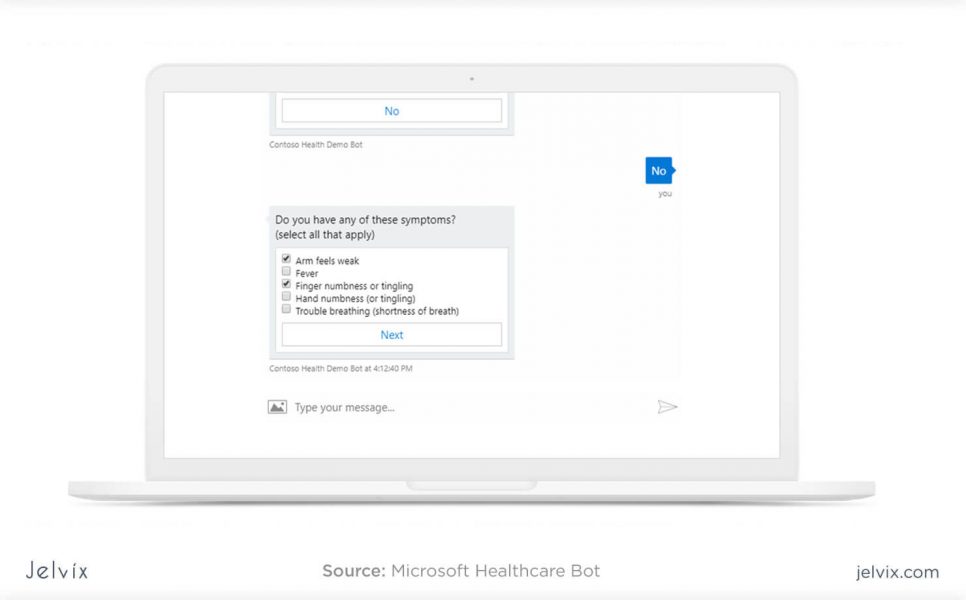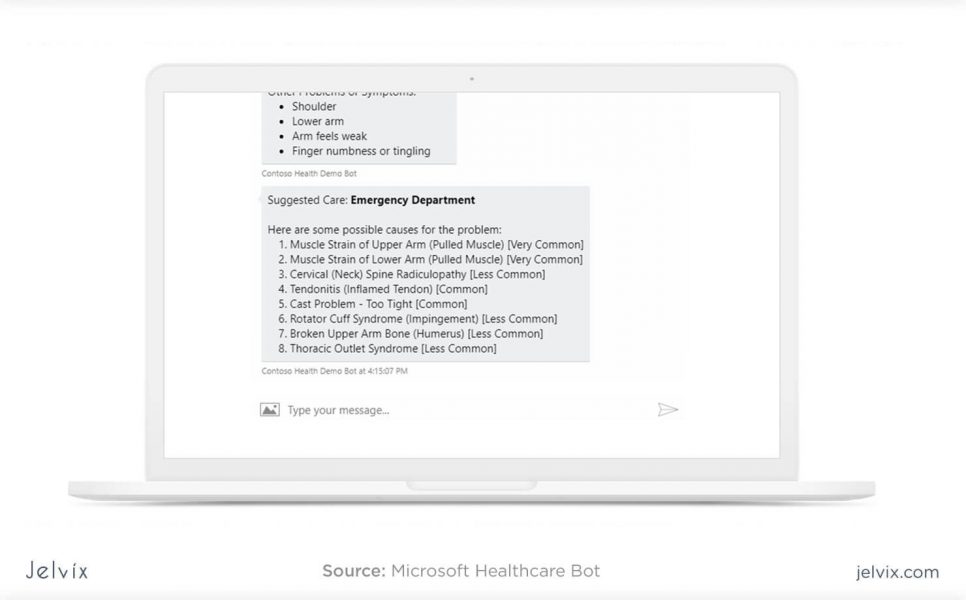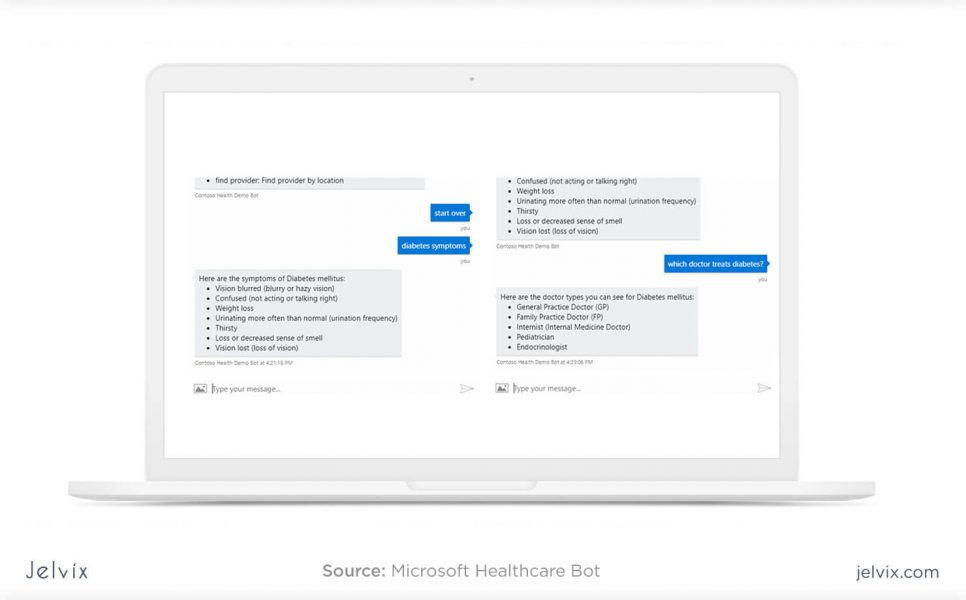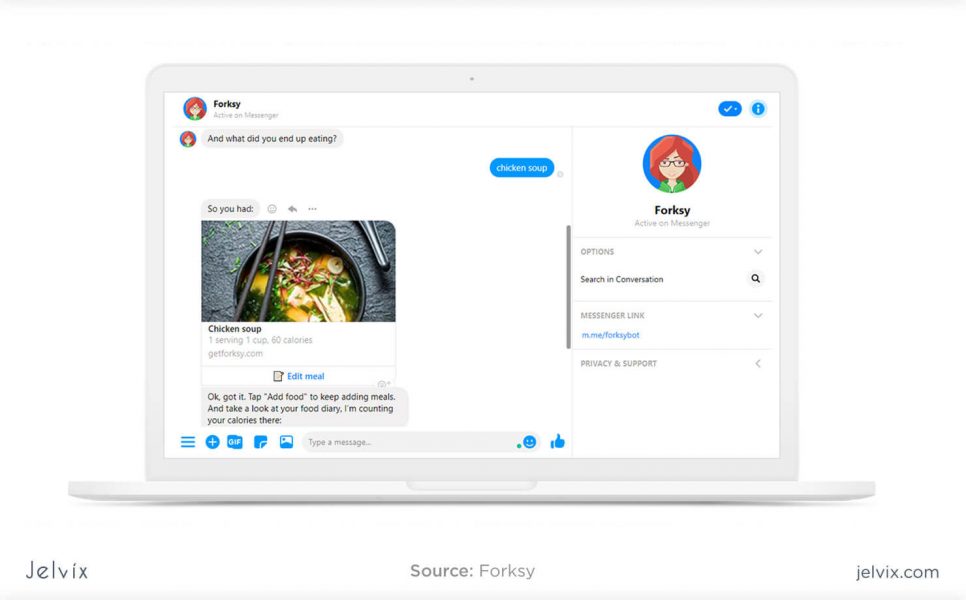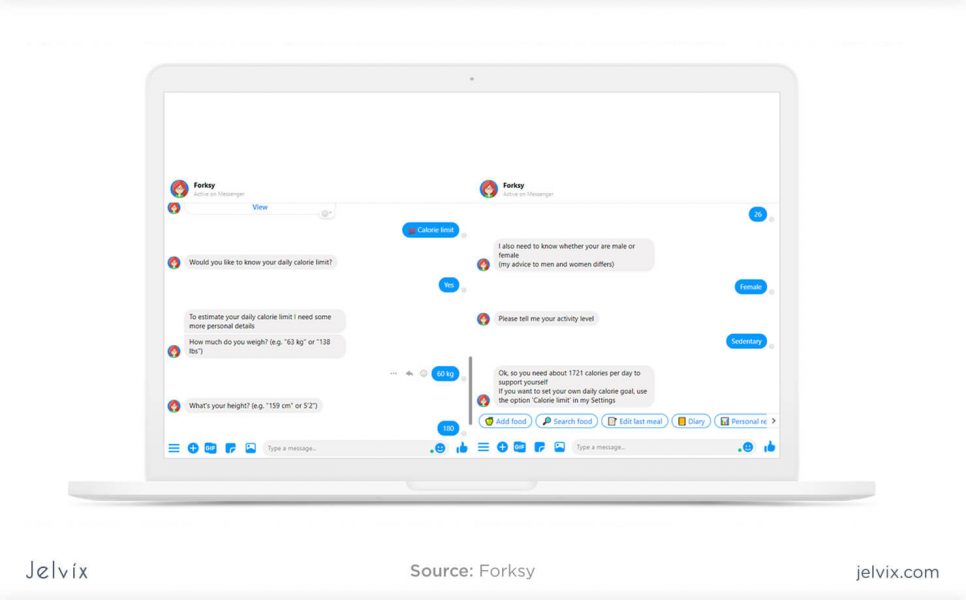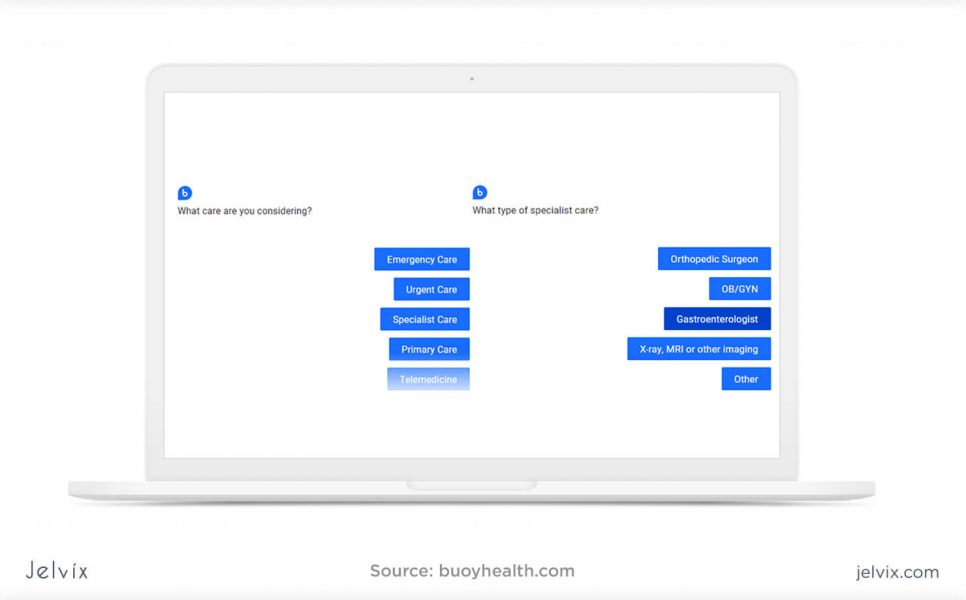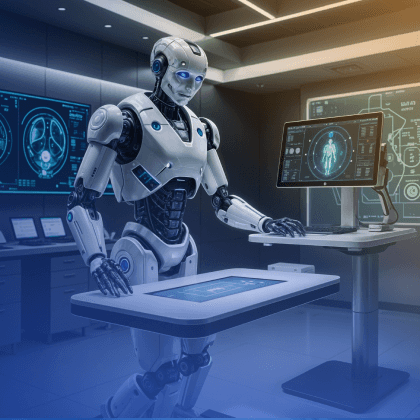Artificial Intelligence is revolutionizing many industries, and healthcare is not an exception. It’s already brought along new equipment solutions for hospitals and is even expected to treat diseases in the future that are incurable today.
What’s the current state of AI in healthcare?
PWC, with reference to Frost & Sullivan, reports that the AI revolution in healthcare takes three decades:
The last decade is when the initial implementation of AI in healthcare took place. You are already familiar with many AI-based solutions in healthcare, like:
- X-ray with automatic calculation bone age, performed by a computer
- AI-enhanced MRI machines that allow an automated reconstruction process
- Ultrasound machines with real-time guidance with the option of automatic diagnosis based on machine learning
In the next decade, AI is expected to bring major changes into the healthcare industry, and ultimately be used:
- to assist in surgeries
- to partake in discovering and developing drugs
- performing genetic modification procedures to cure or prevent hereditary diseases
Ultimately in the future, AI is set to do mostly preventive work, as the role of preventive healthcare will grow substantially. So, future advancements in AI will mostly focus on helping the patients to avoid getting sick and on promoting preventive measures in healthcare.
What about the current state of AI in healthcare?
From the PWC’s charts above, we can assume that the current state of AI in healthcare shows its focus on creating medical platforms.
These platforms deliver healthcare-related services and focus mostly on creating seamless experiences for the patients. Among these platforms, you can already find pain management systems, assisted diagnosis systems, and conversational AI.
How is conversational AI changing the quality of healthcare?
Conversational AI, more commonly known as healthcare chatbots, is a software, which conducts a conversation using auditory or textual methods. Chatbots simulate human interactions. In healthcare, in particular, they simulate a conversation between a patient and a healthcare assistant.
What benefits does conversational AI bring to the patients and clinicians?
- Ongoing patient monitoring. Conversational AI in healthcare is primarily focused on helping both the doctors and the patients keep track of the progress of treatment. In cases where a patient can’t reach the hospital, a doctor can still receive their treatment data.
- Educating the patients. Healthcare chatbots can help patients get necessary information about drugs, help them calculate drug dosage, educate them on side effects, and give recommendations.
- Helping schedule appointments. Healthcare chatbots used by hospitals can provide patients with information regarding the schedules and make appointments.
Ultimately, conversational AI in healthcare is aimed at building trust between hospitals and patients and help patients feel more comfortable and confident.
What do physicians think of conversational AI in healthcare?
Physicians support the role of conversational AI in healthcare. They name personalization as one of the most important patient demands that healthcare chatbots can help achieve.
A cross-sectional web-based survey, which united 100 physicians across the United States, has shown that:
- 78% of physicians expect the chatbots to deliver administrative benefits, scheduling an appointment, helping patients find hospitals nearby, and perform ongoing treatment monitoring
- 71% of physicians expect conversational AI in healthcare to serve mainly an educational purpose
In general, physicians believe that costs spent on conversational AI are feasible when it comes to achieving personalization. On top of that, they support the idea that chatbots are effective in coaching and assisting the patients.
The takeaway: conversational AI in healthcare mainly serves the purpose of personalization, helping the patient feel more confident in the ongoing treatments and feel more trust towards the hospitals and the doctors.
What’s the current landscape of conversational AI in healthcare?
While healthcare chatbots are only a developing technology, there are already several interesting applications that show how this technology can help achieve higher personalization.
Let’s take a look.
1. Answering a patient’s health concerns
Many patients don’t feel comfortable discussing certain symptoms with doctors. We can see this tendency with colorectal cancer, which has symptoms such as diarrhea and blood in the stool. Patients often feel uncomfortable discussing these symptoms with their close relatives, let alone the doctors. This is the reason why this type of cancer is often diagnosed in the late stages.
This happens because patients aren’t educated enough about different symptoms and what they might indicate.
The aim of conversational AI, in this case, is to create the level of personalization that will help the patients feel more comfortable discussing such symptoms by learning more about them.
One of the key players, who provide conversation AI that listens to a patient’s health concerns, is Boston-based Buoy Health.
This conversational AI platform was developed by Harvard students and is used by Harvard Medical School and several hospitals in Boston and Boston area.
What’s its purpose? To eliminate guesswork by providing patients with accurate symptom descriptions.
How does it achieve accuracy? Before interacting with a patient, Buoy chatbot conducts a survey, collecting necessary demographic data:
After this survey, you get access to a chatbot, where you can type in your symptoms. Buoy smart assistant can also help you make the description of your symptoms more detailed. Then it proceeds with asking about the frequency of pain symptoms, the degree of pain, if it’s consistent or not, and if the symptoms are improving or not. It also asks information about symptoms coming from different body organs to make search results more accurate. A patient can also provide their own answer:
In the end, you get the search results, and the assistant also gives an opinion, which doctor you should see (if there’s a necessity) to consult regarding your problem.
How is this smart assistant different from just googling the results?
Fair question. But the difference is drastic.
To receive the results regarding one symptom, we had to answer at least 15 questions. Many of these questions allowed us to provide our own answers.
The difference between Buoy Smart Assistant and Google is in high-personalization. The chatbot gets to know you a bit before asking about your symptoms, while Google only provides general results, which can be applied to everybody.
For instance, if a woman is concerned with lower back pain, she will never get a suggestion that she might have a problem with her urethra.
Ultimately, Buoy chatbot aims at helping people understand their bodies better and feel more comfortable about discussing symptoms with other healthcare professionals.
Knowledge builds confidence. Many of us don’t know enough about how our body functions. Having a reliable healthcare assistant at hand that will listen to our health concerns and provides us with reliable information can help us feel more comfortable and confident.
2. Remote doctor appointments
For many patients, personalization in healthcare means having regular access to the doctor that treats them. This is especially true for patients who have chronic diseases and might have a need to receive an urgent consultation.
In reality, however, this level of personalization is hard to achieve. Hospitals are often overcrowded, and patients often need to schedule appointments at least a month in advance.
Conversational AI can be an appropriate solution in this case. Today, it not only helps schedule appointments but also helps hold remote doctor appointments.
Babylon, a UK-based health service provider, offers exactly what’s been described above. Apart from a basic symptom checker, Babylon chatbot can connect you to hundreds of local healthcare professionals to hold a remote appointment.
Patients can either choose free NHS GP services or private services with Babylon:
Once the patient chooses the option that fits best, they can enter their postcode to determine the location. After doing so, they get access to the map where they can see all the NHS specialists available in their area.
Before the appointment, the Babylon chatbot asks the patient about the symptoms which it then hands over to the doctor. This helps decrease the time of the appointment and allows the doctor to ask more detailed questions.
Recently, Babylon took their appointment scheduling feature to another level. In a partnership with Canadian healthcare service Telus Health, they launched a project that surveys a patient, evaluates the symptoms, and schedules an appointment with the closest available specialist in a relevant field.
Conversational AI, like the one owned by Babylon, serves not only the purpose of convenience. It also helps make sure that patients receive healthcare services in time before their symptoms lead to unwanted complications.
3. Helping observe symptoms
During treatment, patients are often asked to observe their symptoms, check their intensity, and report if new symptoms appear. While a patient can do the first two tasks without additional help, they still need to contact the professionals to report new symptoms. It is not always possible, though it’s necessary to keep track of the treatment progress.
So how can personalization still be achieved if a patient cannot report a symptom directly to the healthcare professional?
Conversational AI already has a solution to this issue. In February this year, Microsoft has launched its Health Bot that helps patients report symptoms on time. It asks a series of questions to determine the intensity of a symptom:
The chatbot also asks multiple-choice questions to record more details about a symptom:
If the symptom is life-threatening, the chatbot suggests the type of care that a patient should refer to along with several possible diagnoses:
As a result, Microsoft chatbot aims at helping patients and doctors achieve better treatment results. It also works for better personalization, making patients feel more confident in receiving help and support when they need it.
Besides, patients can receive general information on the symptoms of different diseases and which doctor to see if they experience similar symptoms:
Thus, conversational AI like Microsoft Health Bot not only helps patients keep track of symptoms but also receive general knowledge about healthcare.
4. Conversational AI to support a healthy lifestyle
At the beginning of the article, we talked about how, in the future, AI will be more focused on preventive healthcare.
Well, conversational AI is making its contribution already.
There are chatbots on the market that help people lead a healthy lifestyle, eat more healthy food, and keep track of their weight. Among these chatbots, Forksy is one that really stands out.
Why?
It is integrated into Facebook Messenger, and you don’t have to download it as a separate application. So, if you want to watch your calories, you simply add the food you last ate, and the bot will count the calories:
It also calculates your daily calorie limit to optimize your food intake. Chatbot provides this information based on your age, height, and weight:
How does this chatbot help achieve a more personalized approach in healthcare?
There are many health conditions that require observing a strict diet. This chatbot can be used to create a diet tailored to the needs of a specific patient with a specific health condition. This information is stored safely on the cloud used by the chatbot and can be retrieved by a healthcare professional with permission from the patient.
Physicians also may recommend their patients, who want to lead a healthier lifestyle, use this chatbot to follow their diet diary, observe calories, and study the nutritional value of different food items.
What else is on the market?
There are chatbots in the healthcare industry that operate beyond educating patients about symptoms and health conditions.
For instance, Sensely offers conversational AI that helps patients find an insurance plan that fits their needs. Adam Odessky, the SEO of Sensely, says that the aim of this intelligent chatbot is to educate patients about different healthcare insurance options.
Sensely chatbot also helps patients evaluate medical procedures, and determine, which ones they really need. Thus, patients can learn more about the constituents of their healthcare insurance and save money.
Thus, chatbots like Sensely can help patients feel more comfortable when they go to the hospital to receive treatment. Sensely creates high-level personalization for patients, as every case is considered separately to help choose the best healthcare insurance option.
What are the challenges for conversational AI in healthcare?
It may seem that the conversational AI described above has revolutionized personalization in healthcare.
It’s not the reality, however.
Since conversational AI in healthcare is still an emerging technology, there are several challenges that it has to tackle.
Challenge #1: Personalization should be written into the script
Conversational AI isn’t a cheap technology. The cost of chatbot development depends on such factors as industry and purpose. So, if you want a healthcare chatbot to have a more personalized approach, personalization should be written into its script.
Chatbots often have two common issues:
- observing an appropriate style
- imitating proper human interaction
While the first issues can mostly be solved with automated proofreading tools like Studicus, WowGrade, SupremeDissertations or Grammarly, the imitation of human interaction is an issue for natural language processing (NLP).
NLP is concerned with helping technology meaningfully interpret human language inputs. The level of personalization will depend on how well a chatbot can recognize human language inputs and which machine learning algorithms will prompt it to answer.
Since machine learning and NLP are still developing along with AI, today’s chatbots are far from perfect in terms of personalization. Thus, more work should be done in terms of technology to achieve better personalization.
Challenge #2: Security issues
When it comes to AI, there’s always an issue of security. In healthcare, the security of a patient’s personal data is a particularly sensitive topic. So, strong security protocols are needed for chatbots to safely collect the data.
Chatbots also need to use better fraud detection mechanisms to separate a bot from a real person. Right now, chatbots, like Babylon’s smart assistant, use Facebook or Google authentication to verify the identity of a patient.
However, chatbots need better technology to protect data from ransomware and other threats, especially in the wake of the recent cybersecurity attacks on hospitals and healthcare systems.
Challenge #3: Patients making self-diagnoses
All the examples of conversational AI described above aim at educating patients about symptoms and health conditions.
In this case, there’s always a threat of patients making self-diagnoses without consulting a physician.
Some chatbots, like Buoy Smart Assistant, partly prevent self-diagnoses by suggesting a patient see a healthcare professional:
For sure, there’s a certain threat, when it comes to self-diagnoses. A patient can prescribe themselves a medicine that they think might be effective when, in reality, it can harm them even more.
Nevertheless, the threat still exists. Physicians who took part in a cross-sectional survey, described at the beginning of the article, voiced this issue. Reportedly, 74% of surveyed physicians were concerned with the risk of self-diagnosis as a result of an interaction with a chatbot.
Of course, with a level of detail that Buoy chatbot, for instance, approaches symptom description, self-diagnosis is less likely. A patient can still self-diagnose themselves by simple googling the symptoms. However, this issue should be researched further to avoid unwanted issues like false treatment as a result of self-diagnosis.
Read more about the role of the app development companies in medical diagnostics.
Final Word
There’s no doubt that conversational AI can help achieve a more personalized approach in healthcare. It’s what all patients need – to be treated with more care and consideration. And while the doctors can’t always provide high-level personalization, chatbots certainly can.
Today, there are already plenty of chatbots that perform different functions and make healthcare more personalized. They help patients observe, analyze, and keep track of their symptoms, schedule, and hold doctor appointments and even help lead a healthier lifestyle.
Nevertheless, there’s much to be achieved in conversational AI. There are still plenty of challenges that conversational AI needs to overcome to allow better personalization, including security issues and self-diagnosis.
Conversational AI is paving the way for a more personalized approach in healthcare, offering patients and providers innovative communication tools that extend beyond traditional care. For those interested in the technological advancements driving these changes, Jelvix’s expertise in Healthcare software development provides a glimpse into the future of patient-provider interactions.
Other than that, conversational AI is the technology that definitely can bring a lot of benefits to healthcare to improve the quality of treatment and help create a more personalized approach to the patients.
What’s your take on conversational AI helping to achieve personalization in healthcare?
Estelle Liotard is a Senior Writer at Trust My Paper and an Editor at Grab My Essay, respectively. She is an experienced content creator and a writer who excels in AI-related topics with an emphasis on its practical business applications. In her spare time, Estelle enjoys quiet afternoons on her balcony and cooking.
Need a qualified team?
Reach new business objectives with the dedicated team of professionals.


